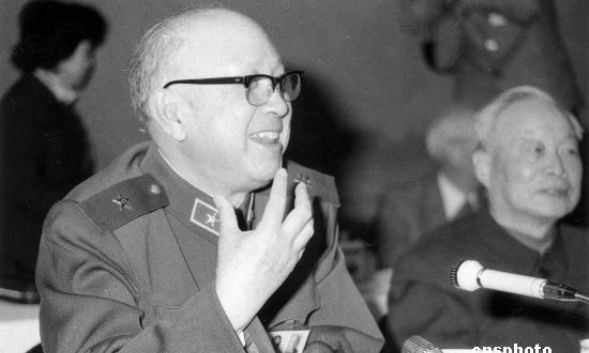Qian was born on December 11, 1911 in Hangzhou, Zhejiang Province. He was the pioneer of Chinese astronautical technology and known as the "Father of Chinese Aerospace" and "King of Rocketry". Between 1946 and 1949 he acted as associate professor of aerospace and professor of aerodynamics in the Massachusetts Institute of Technology (MIT). From 1949 to 1955, he was director and professor of the Jet Propulsion Laboratory in the California Institute of Technology, before returning to China.
During his study in US, he co-authored the article "Comment and Initial Analysis of Long-Range Rocket", which laid a foundation for ground-to-ground missiles and sounding rocket theory. He also cooperated with others to put forward the hypersonic flow theory, a basis for the development of aerodynamics. In early 1956, Qian put forward a "Proposal on the Development of China's Aviation Industry for National Defense" that led to the setting up of the Aviation Industry Committee, a research facility for missiles and aeronautics. The same year, he was given responsibility for the establishment of China's first missile and rocket research institute--the Fifth Research Institute of the State Ministry of Defense. He was in charge of the program of "jet and rocket technology building", participated in the development of short-range missiles, medium-range missiles and China's first artificial earth satellite. He led the development of the medium-range nuclear missile and drew up the plan for short-range nuclear missiles, worked out China's first aeronautic development program and developed and established engineering cybernetics and systems science. Qian contributed much to the fields of aerodynamics, aviation engineering, jet propulsion, engineering cybernetics and physical mechanics. He was the founder and initiator of mechanics, systems engineering theory and applied research in modern China.
Between 1955 and 1964, he served successively as director-general and research fellow with the mechanics institute of Chinese Academy of Sciences (CAS), deputy director-general and director-general with the fifth research institute of the State Defense Ministry. From 1965 to 1970, he was vice minister of the Seventh Ministry of Machinery Industry. From 1970 on, he acted as deputy director-general with the Commission of Science, Technology and Industry for National Defense and vice chairman of China Association for Science and Technology. He also held the posts of the first and second director-general of China Automation Association, honored president of Chinese Society of Astronautics, Chinese Society of Theoretical and Applied Mechanics and Systems Engineering Society of China, executive director of CAS chairman's committee and CAS academician of the mathematics and physics division. Between 1986 and 1991, he served as chairman of the third Chinese Association for Science and technology. In May 1991, he was elected honorary chairman of the same organization. In April 1992, he was engaged as honorary president of CAS academic divisions. In June 1994, he became an academician of Chinese Academy of Engineering.
In 1957, Qian won first prize in natural science of CAS. In 1979, he was given the outstanding alumnus prize by California Institute of Technology and, in 1985, he was awarded first prize in the national advanced technology awards. In 1989, the title of "World's Celebrity for Sciences and Engineering" and honorary membership of International Technology Research Institute were conferred to him. In October 1991, he won the title of "China's outstanding scientist with outstanding achievements” and the nation's first-grade medal for heroic models conferred by the State Council and the Central Military Committee. In January 1995, he won the outstanding award of the Ho Leung Ho Lee Foundation. In 1999, the CPC Central Committee, the State Council and the Central Military Committee decided to confer on him a "meritorious medal for the success of the atomic bomb, hydrogen bomb and artificial satellite programs. In October 2006, Qian won the "Top Honor for 50 years of China's Aviation Cause".

